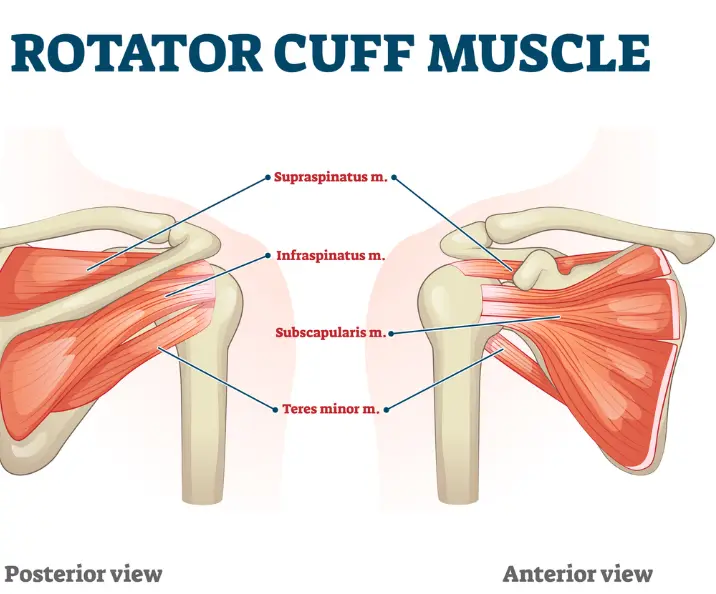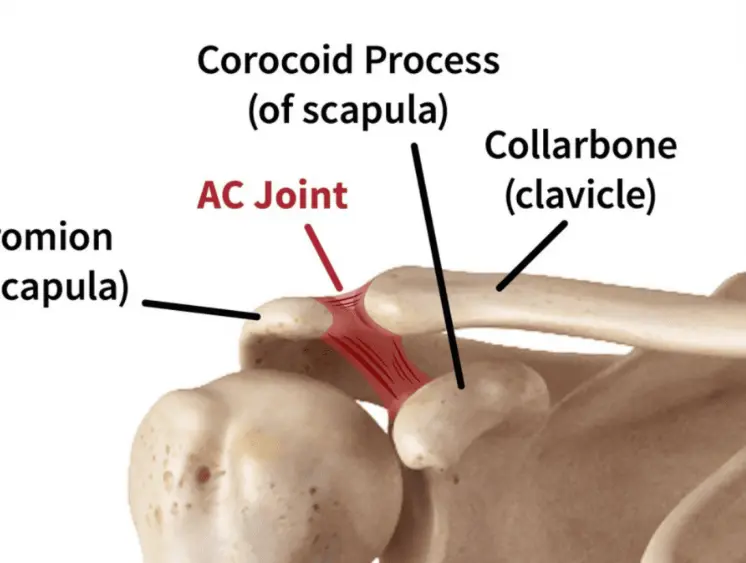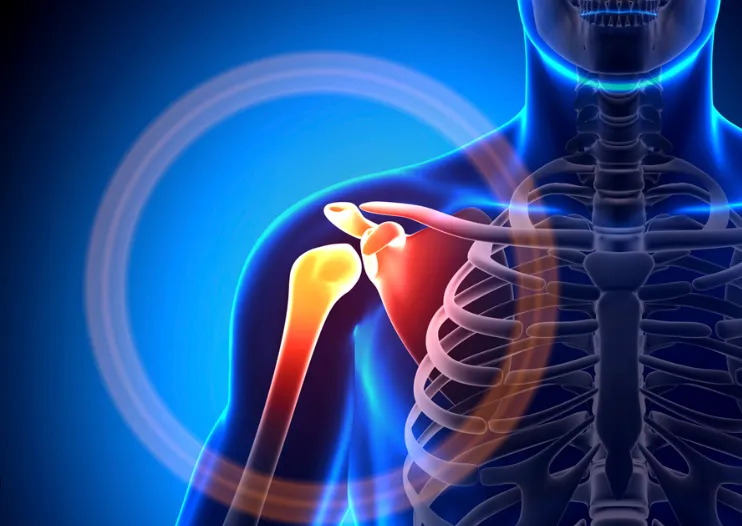Shoulder pain while lifting weights is a common problem that can make even the strongest of lifters feel like throwing in the towel on their training. But, as performance physical therapists, we’ve seen it all and have helped countless lifters overcome this issue so they can get back to throwing around weight and impressing their gym buddies.
One of the most common causes of shoulder pain while lifting weights is rotator cuff-related shoulder pain. The rotator cuff is a group of four muscles (the supraspinatus, infraspinatus, teres minor, and subscapularis for our fellow anatomy nerds out there) that all start on the shoulder blade and attach to the humerus. These muscles can help move the shoulder in many different directions, but their main job is to provide most of the dynamic stability for the shoulder. Because of this, the rotator cuff is highly active in all activities that involve the shoulder joint, including lifting weights!

Rotator cuff-related shoulder pain typically happens as a result of doing more training volume or intensity than the muscles/tendons are ready for, and is therefore a type of overuse injury. This can happen suddenly, like if you randomly go for a huge PR that you haven’t properly trained for, or over a longer period of time, like if you quickly ramp up training volume and hold it there for a while as you try to prepare for the upcoming Crossfit Open.
Another common cause of shoulder pain while lifting weights is instability. This occurs when the shoulder joint is not stable and feels like it’s going to pop out of the socket during certain activities like benching, overhead pressing, and snatching. It’s like trying to balance a grapefruit on a toothpick, but it’s your shoulder and it’s not as fun.
This can happen as a result of a sudden, traumatic injury, such as trying to save a snatch that you lose behind you and not letting go of the bar in time, or smaller traumas that occur over time and gradually reduce the stability of the shoulder.
AC joint injuries are another somewhat common cause of shoulder pain in lifters. The AC joint (ie acromioclavicular joint) is the joint between a piece of bone from your shoulder blade called the acromion process, and the end of the collar bone (ie clavicle). The AC joint is a part of the shoulder complex, and is most stressed when moving your shoulder through the very ends/extremes of the range of motion.

Most lifters will state that this type of pain is worse at the very bottom of the bench press, at the top of overhead presses, or during movements like snatches, overhead squats, and split/power jerks.
In light of the various causes of shoulder pain while lifting weights, it is essential to seek the help of a physical therapist who specializes in working with lifters and athletes. Physical therapists who are inexperienced in working with these types of clients may provide a cookie-cutter exercise program that is designed to be used by a wide range of patients, but it’s like trying to fit a square peg in a round hole, it just doesn’t work well.
On the other hand, a performance physical therapist will assess your specific needs and develop a tailored program to help you overcome your shoulder pain and get back to lifting weights in the fastest and most complete way possible.
One of the most important benefits of seeking the help of a performance physical therapist that specializes in working with these types of clients is that they will provide you with a 1-on-1 evaluation for an hour. This will allow them to conduct a thorough assessment of your shoulder joint and identify the specific cause of your pain, like a detective solving a mystery. They will then design a personalized treatment program to help you overcome your pain and improve your performance, and will help you modify your regular training so that you don’t have to skip training for weeks or months.
Another important benefit of seeking the help of a performance physical therapist is that they will help you avoid the risk of reinjury. This is because they will not only help you address any flexibility, strength, or stability deficits that are contributing to your injury, but they’ll also give you the education and tools necessary to continue lifting and training in the safest and most effective way possible for life.
If you’re looking for help with a shoulder injury that you just can’t seem to shake, fill out the form above and one of our shoulder experts will reach out to you to see if we can help you out!



